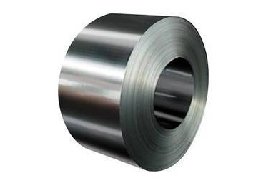
One kind of steel product that is produced using the hot rolling method is hot rolled steel strip. Steel slabs or billets are heated to a high temperature and then run through a number of rolling mills to create it. The steel becomes thinner as a result of this procedure. It lengthens it, producing a long, flat strip of steel with certain measurements and characteristics.
For hot-rolled steel strips to remain high-quality, consistent, safe, and function well in a variety of settings and applications, requirements are essential. Following these guidelines guarantees that materials are economical, ecologically friendly, and suitable for their intended use, which benefits producers, consumers, and society as a whole.
Under IS standard 1029: 1970, all requirements for hot rolled steel strip (bailing) are covered by the required ISI Certification Scheme.
The three classes of hot rolled steel strips—soft, medium, and hard—are described in this standard. Known as baling hoops, these strips have a nominal thickness of less than 3 mm and a width of less than 75 mm.
The steel used to make the strips should come from a variety of processes, including open hearth, electric, duplex, basic oxygen, or a combination of them. The chemical composition needs to meet the specifications as stated in the standard. It is necessary that the material be devoid of any harmful imperfections.
Indian Standards Institute, or ISI was renamed the Bureau of Indian Standards (BIS) in 1987. The official mark that the Bureau of Indian Standards provides for manufacturers of various goods is the ISI Mark. It is used to indicate compliance with Indian standards (IS) set by the Bureau of Indian Standards (BIS) and has been used as a conformity marking for industrial products. Manufacturers received permission from BIS to use the ISI Mark on items that comply with relevant Indian requirements through the product certification program.
Only manufacturers (domestic or foreign) who produce the finished product will be awarded ISI Certification. This will not be given to any product importers, traders, dealers, or distributors.
The following documentation is required to get an ISI certification:
For more detailed information, please click here.
There are two approaches for Indian manufacturers to become certified with the ISI Mark:
Regular Procedure
With the possible exception of cases deemed "All India first," which might take up to 180 days, the licensing procedure is expected to be finished in 120 days. This timeline starts on the day the application is received, assuming that at different points in time the documentation, unit assessment, and product conformance are all deemed acceptable.
Step 1: Manufacturing Unit Customization in Compliance with Applicable Indian Standards
Step 2: Submission of the Application Form
For more detailed information, please click here.
Simplified Procedure
This is a much faster process than the standard procedure. After a factory inspection is deemed satisfactory and the initial evaluation establishes that the sample complies with the applicable Indian Standard(s), the license application process is expected to be finished in 30 days.
Step 1: Adapting the Manufacturing Unit to Comply with the Relevant Indian Standard
Step 2: Sample Testing
For more detailed information, please click here
The process of obtaining ISI Mark Certification for Foreign Manufacturers typically includes the following steps:
Step 1: Application
Step 2: Query Raised (If Any)
For more detailed information, please click here.
Brand Liaison provides helpful support for achieving ISI Mark Certification. Among our offerings are:
Please click here to get in contact with our team of specialists for a deeper explanation of the paperwork and steps needed to get ISI Mark Certification.